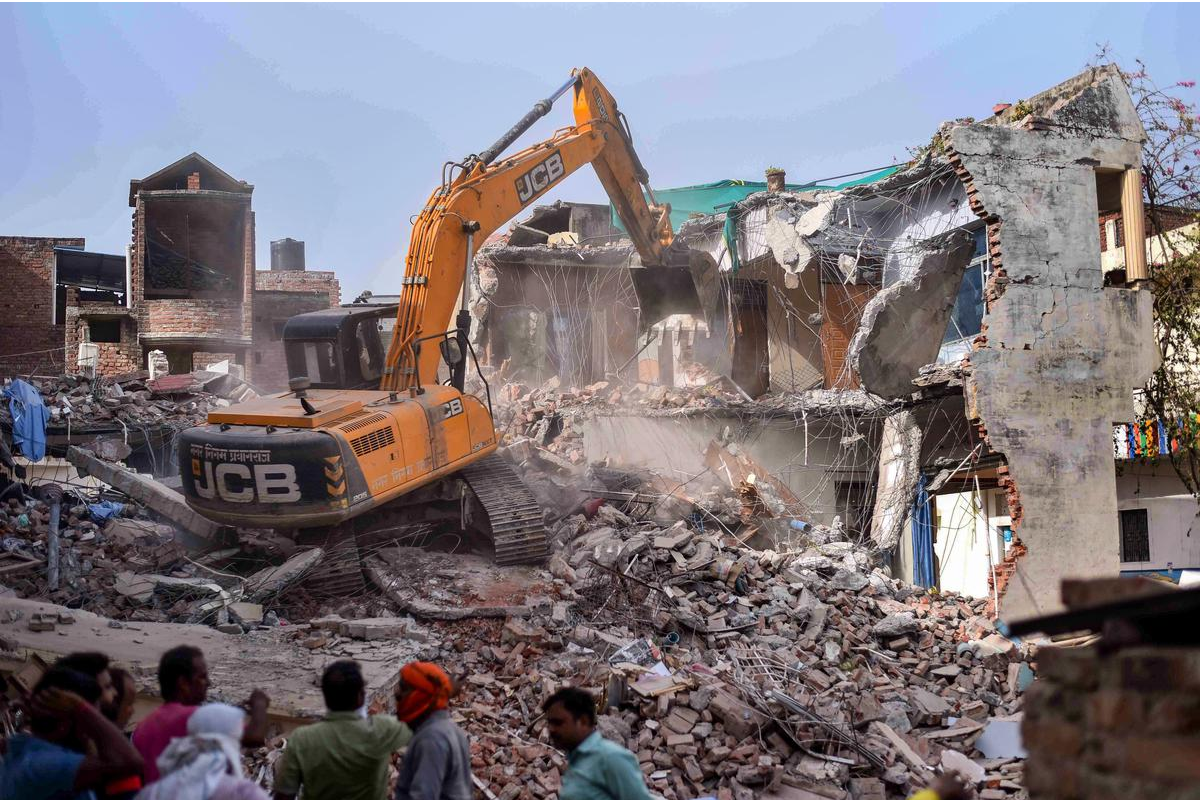
Bulldozer injustice no more
The Supreme Court’s ruling proscribing instant demolition of dwellings of persons accused of certain offences is a tight slap on the face of the Yogi Adityanath-led Uttar Pradesh government which had often flaunted its lawless action as a trophy for well over five years. The apex court by slapping a pan-Indian ban on such retributive action by officials, has restored people’s confidence in the Constitution and ensured that lines between the executive action and judicial process will not be allowed to blur. Not alone this, the court by laying down punishment for officials who initiate such action, has eliminated the scope for highhandedness.
The last decade had witnessed such arbitrary measures being taken by administrations in states mainly ruled by the Bharatiya Janata Party and especially against Muslims and Dalits who were accused of certain offenses. The activity had seen a spike in recent month allowing the victims no time and scope for defence and seeking protection of law. The judgment is significant for being the first final order against a spate of illegal demolitions that were carried out and appeared to be totally vindictive against communities that rejected the ruling party at the hustings. The administration had sought to camouflage its action behind violation of municipal laws. The apex court had reserved its judgement on October 1 on a batch of three public interest litigation (PIL) petitions filed in 2022 following the Amnesty International report early that year. The international NGO has cited punitive bulldozing of 128 structures between April and June 2022 in four BJP-ruled states and one Aam Aadmi Party(AAP) governed state.
On September 17 the court in an interim order stayed demolitions across the country. However, the order did not apply to unauthorised construction on public roads, footpaths, railway lines or public places. The ruling also refers to the Constitutional right of individuals to shelter which does not belong only to an individual but to a family or number of families, most of whom would have no role in an offence committed by a single individual. A look at the chronology of cases suggests that the administration demolished the house (in Udaipur) of a schoolboy sent to a remand home for killing his classmate following a scuffle. Similarly, 800 homes of Muslims were razed in Nuh district of Haryana for encroachment soon after a religious procession was stoned on a stretch of the road.
The ruling has held the demolitions ‘unconstitutional’ as no provisions in Indian law allows demolition of homes as a punitive measure. But practice became commonplace under the Yogi, Shivaraj Singh Chauhan and Hemanth Biswa Sarma dispensations. The court has directed that officials initiating such actions must be made accountable. The Court has also issued guidelines which make it mandatory for the authorities to issue a 15-day notice to an occupant before the illegal property is demolished. The notice should cite the reasons for demolitions and the action should be initiated only if the accused does not respond to the notice within 15 days. The action should also be filmed. The court’s directive will be widely welcomed as it puts a final seal of prohibition on an unlawful activity by the state which had ironically tom-tommed it as “bulldozer justice”.
 English daily published in Bengaluru & Doha
English daily published in Bengaluru & Doha






